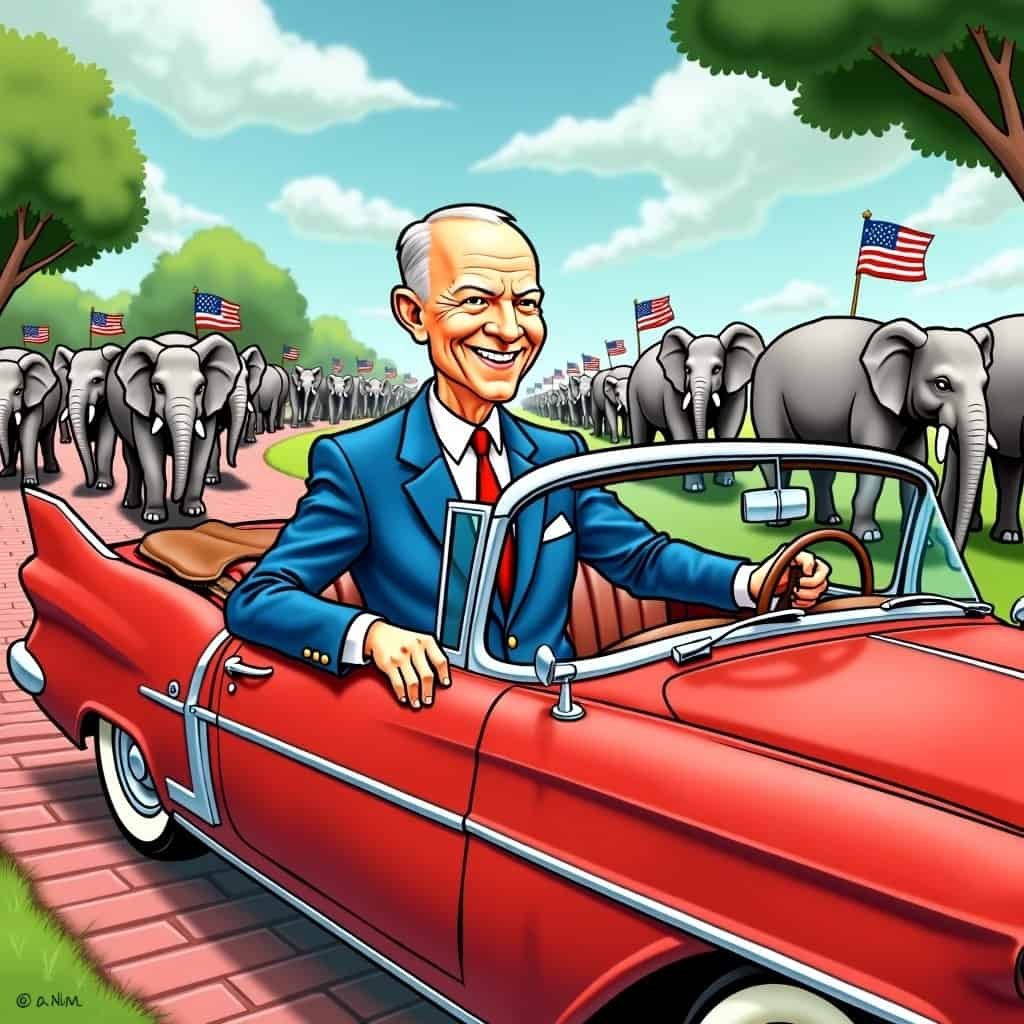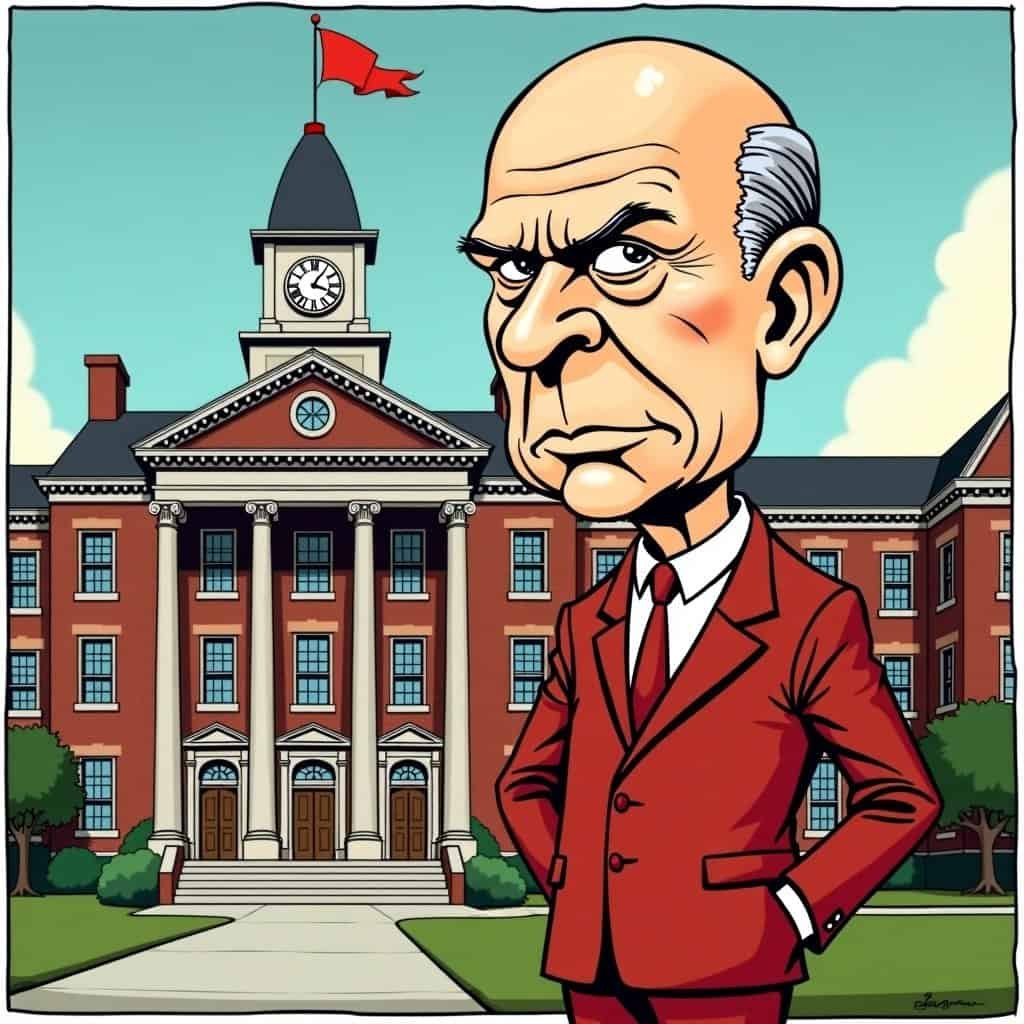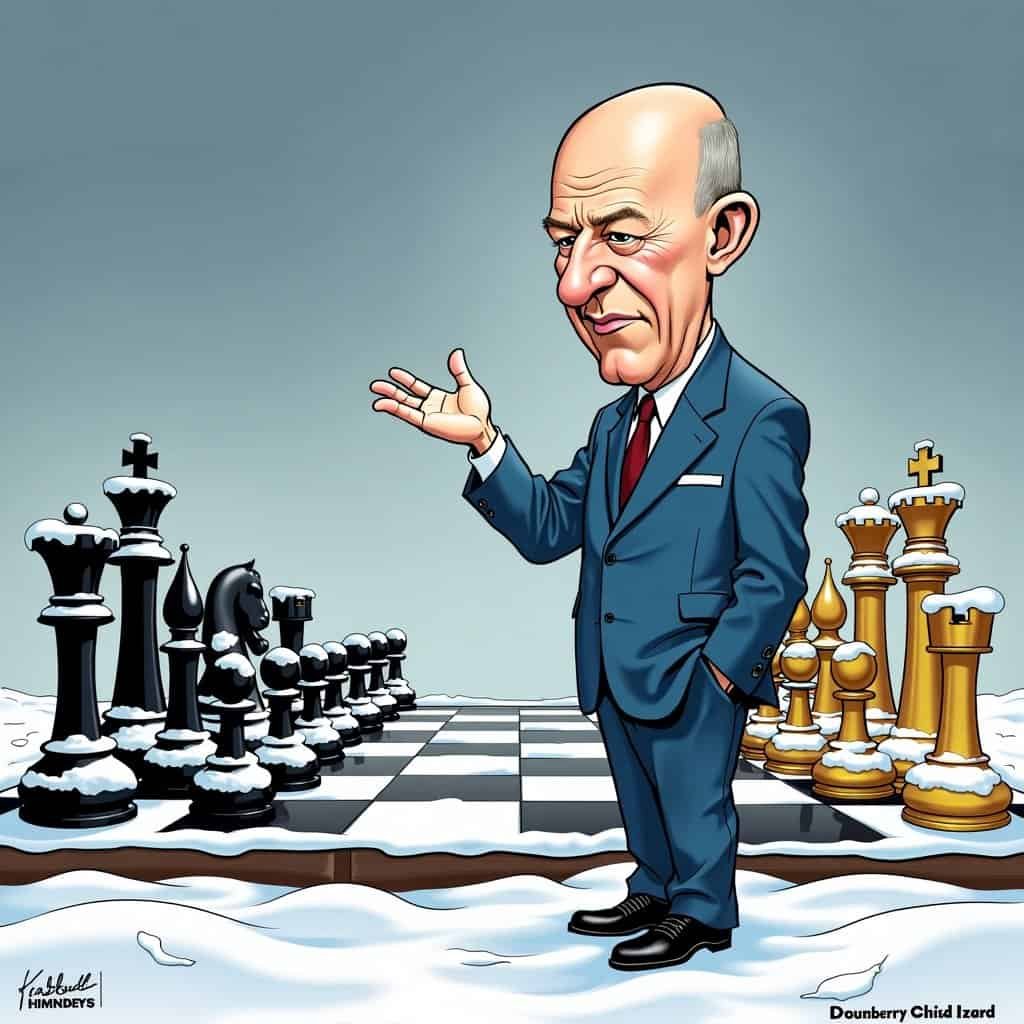Once upon a Cold War time, Dwight D. Eisenhower—the five-star general turned Commander-in-Chief—made an unexpected move. He took a concept typically associated with liberal Democrat initiatives and gave it a conservative spin. Yes, my fellow patriots, it was Ike who expanded Social Security! Republicans, brace yourselves, because we’re about to take a playful stroll through history.
Now, you might wonder, “Why would Ike, a man who surely understood the value of liberty, expand a program rooted in wealth redistribution?” Well, sometimes the best generals spot a strategic advantage in borrowing a tactic from the other side. Like a brilliant chess move, this expansion was meant to serve the people without overburdening our beloved capitalist system.
Picture a time when the dust of World War II had barely settled, and America was figuring out its post-war identity. In his decision to extend Social Security benefits, Eisenhower showcased a principle deeply rooted in conservative ideology—the importance of empowering individuals while providing a safety net for those who truly need it, like launching a rescue boat in a sea of stormy progressivism.
Eisenhower’s Strategy: A Conservative Approach to Social Security
Through the expansion, Eisenhower aimed to support the elderly and the disabled, ensuring they weren’t left as pawns in the social safety chess game. By doing so, he managed to reinforce the idea of economic stability for American families without excessive federal intervention. In a time of advancing technologies and economic shifts, Ike knew that some protection from the tides was necessary, but without dampening the nation’s entrepreneurial spirit.
Eisenhower’s Social Security Expansion: Key Points
- Extended benefits to the elderly and disabled
- Balanced government involvement with local liberty
- Maintained focus on hard work and personal responsibility
- Aimed for economic stability without excessive federal control
You see, Eisenhower’s idea of expanding Social Security wasn’t about promoting dependency or increasing government control. Not at all! This was about supporting those truly in need, while fiercely protecting the values of hard work and personal responsibility. It’s like giving a man a fishing pole along with a thriving market to start a business selling fish sticks to everyone else!
Eisenhower’s plan was to keep this system sound—balancing government involvement with local freedom. This move showed conservative principles in action: it wasn’t about creating a cradle-to-grave government scheme. Instead, it used a practical monetarist approach—the safety net was carefully adjusted, respecting both the taxpayers and the free market.
A Conservative Perspective on Social Security Expansion
What Democrats view as a bold step toward equality, Eisenhower saw as a chance to provide a balanced and practical solution that fit with the broader Conservative ethos. It wasn’t about spreading all the cheese evenly across the cracker; it was about making sure no corner got left out in the cold!
So as we enjoy our perfect blend of liberty and rugged individualism, let’s tip our hats to Ike. His careful expansion of Social Security might have looked like dancing with the enemy at first—but it was truly a clever move of conservative foresight. Just like every seasoned general knows, sometimes it’s the boldest advances that keep the fort strong.
Here’s to Eisenhower, the conservative chess master who played the expansion of Social Security as the perfect king’s gambit!
Table of Contents
- Eisenhower’s Strategy: A Conservative Approach to Social Security
- A Conservative Perspective on Social Security Expansion






